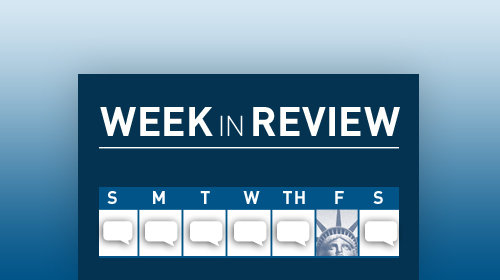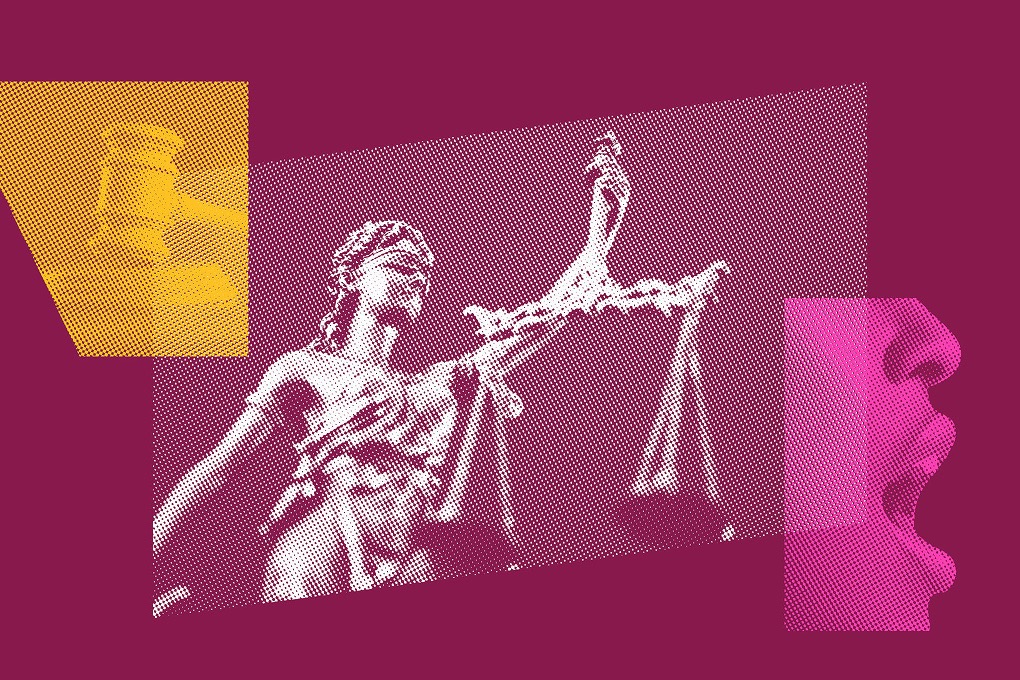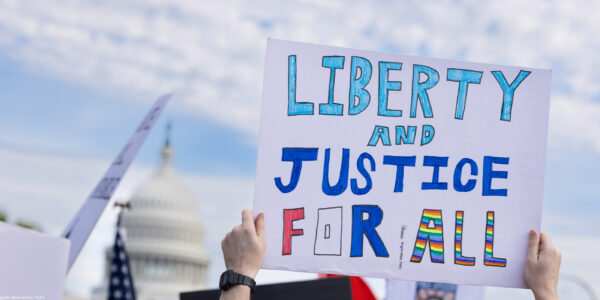
Name three groups that have filed amicus briefs in support of the ACLU's challenge to NSA spying.
What large telecommunications company is paid by the government for access to its enormous phone records database?
What three-letter agency is snooping through billions of AT&T phone records and infringing on Americans' right to privacy in the name of the failed War on Drugs? (Hint: It's not the NSA this time.)
What state implemented a face recognition program using the drivers' license database to check against mug shots and images of suspects without informing the public?
What constitutional amendment does a Texas public school violate by allowing cheerleaders to use religious banners at football games?
Writers, Lawmakers, and the NRA Support ACLU Challenge to NSA Spying
An impressive array of organizations and individuals filed amicus briefs yesterday in support of the ACLU's constitutional challenge to the government's collection of the call records of virtually everyone in the United States. The range of voices joining the protest against mass government surveillance—not to mention the bipartisan storm that has swept Congress since the recent NSA disclosures — is a real testament to the fact that the government's dragnet surveillance practices are offensive to Americans from across the political spectrum.
The Vast, Troubling Call Database Drug Agents Use to Identify Burner Phones
This week the New York Times revealed the Hemisphere Project, in which the government is paying AT&T for access to an enormous phone records database. While some aspects of the program are unclear, we now know that the government has long collaborated with AT&T to conduct sophisticated data-mining of sensitive telephone records, primarily to identify "burner" phones. If anyone needed another example of the ways in which our outdated privacy laws are failing us, here it is.
Drug Agents Have an NSA-Style Spying Problem
Over the last few months, we've been bombarded with revelation after revelation about the NSA's unprecedented spying on Americans. But, according to The New York Times, the NSA's untethered snooping is eclipsed by the agents fighting in a war that began long before 9/11: the costly and failed War on Drugs.
The Drug Enforcement Administration's secret Hemisphere Project, news of which broke this week, allows drug law enforcement agencies broad access to billions of AT&T phone records going back a quarter century—to 1987. As The New York Times explained, "the scale and longevity of the data storage appears to be unmatched by other government programs, including the N.S.A.'s gathering of phone call logs under the Patriot Act."
Ready, Fire, Aim: Ohio Officials Implement Statewide Face Recognition Program without a Whiff of Public Debate
Two months ago, the Ohio state government secretly implemented a face recognition program using the drivers' license database to check against mug shots and images of suspects, a local newspaper has learned.
Cheerleaders and Bible Verses
Prior to kickoff, the cheerleaders at Kountze High School take their place on the field, near the home end zone, and hoist massive banners featuring Bible verses as part of the football team's grand entrance. As a district-sponsored and regulated group with special access to the football field, the squad's members are representative of their public school and their banners are school-sponsored speech.
As the ACLU, the ACLU of Texas, and a broad coalition of religious groups argue in an amicus brief filed yesterday with the Texas Court of Appeals, such public school promotion of religious messages is unconstitutional under the Establishment Clause of the First Amendment.
Learn more about your civil liberties: Sign up for breaking news alerts, follow us on Twitter, and like us on Facebook.



